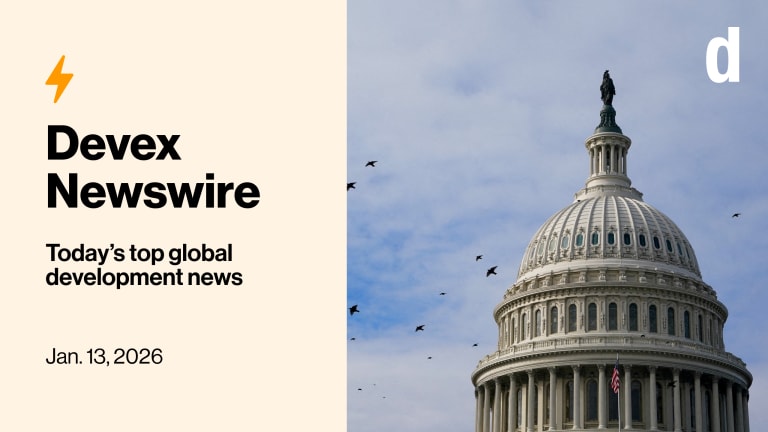
The $1.9 trillion American Rescue Plan Act cleared its final congressional hurdle Wednesday and now awaits U.S. President Joe Biden’s signature, bringing the most significant package of emergency funding for the global COVID-19 response closer to reality.
The bill includes about $11.3 billion in funding for the United States’ global response to the pandemic. The figure falls short of the $20 billion that advocates had been pushing for, but after months of effort to get substantial global funding, they celebrated its passage.
The funding breakdown:
• $3.5 billion for the Global Fund to Fight AIDS, Tuberculosis and Malaria. This supplements the Global Fund’s annual funding and will go through State Department global health funding.
• $3.09 billion to the U.S. Agency for International Development’s coronavirus response focused on international disaster relief, health activities, and food security.
• $930 million to address economic and stabilization needs resulting from the pandemic.
• $905 million for USAID global health activities to respond to COVID-19, including vaccine development.
• $800 million to support Food for Peace food aid.
• $750 million for the Centers for Disease Control and Prevention to combat COVID-19 globally, including efforts related to global health security and global immunization.
• $580 million in multilateral funding, including support for the United Nations COVID-19 Global Humanitarian Response Plan through voluntary contributions to international organizations or programs they manage.
• $500 million for humanitarian response related to migration and refugee assistance.
• $250 million for State Department global health programs — primarily the President’s Emergency Plan for AIDS Relief — to fund COVID-19 response and mitigate the impact of the pandemic on HIV/AIDS programs.
What’s next: The bill goes to Biden for his signature to become law. Once that happens, the money can start to be committed and distributed, but that process could still take months — as happened with funding approved for global COVID-19 response last spring.

Search for articles
Most Read
- 1
- 2
- 3
- 4
- 5








